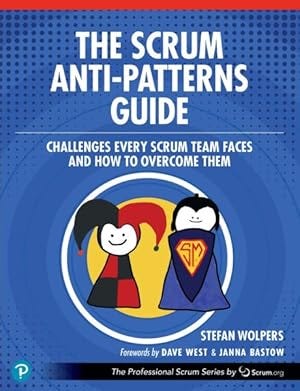Agile Notes No. 70
A collection of links to posts and tools I used in 2024
In this post, I am going to capture some of the articles, posts, and tools I referenced in 2024. I closed some tabs on my browsers (yes, plural, don’t judge me) and wanted to hold on to the learnings. The first comes from the excellent The Scrum Anti-Patterns Guide by Stefan Wolpers.
One of the first tools Wolpers refers to is the Retromat! Where has this been all my life??? The link is to a blog post for beginners or anyone who needs ideas for how to run a retrospective. Retros get real boring, real quick. Steal some ideas. Mix and match. Pick one idea and use it with your team! I love it.
Next is another Wolpers link - this time to an article from 2016 buy Charles Duhigg (his Supercommunicators book is in my queue for this year) What Google Learned From Its Quest to Build the Perfect Team. The full article is well worth your time. Duhigg winds his way through group/team performance and ends up at psychological safety — ‘‘shared belief held by members of a team that the team is safe for interpersonal risk-taking. Psychological safety is ‘‘a sense of confidence that the team will not embarrass, reject or punish someone for speaking up.’’ I read this article early in the year and it stuck with me. Psychological safety is something I think about. Group dynamics. “Good” teams versus “bad”. If you don’t have that TRUST within your team you will not perform very well. Go read it.
Pair that with Tuckman's Stages of Group Development. The Duhigg article above focuses on the “norming” stage. Getting through norming leads to high performance. It is not easy. Building capital-T TRUST.
In the summer, an architect and a product owner and I wrapped up a challenging project and got assigned to a different delivery team with a different way of doing things. We picked up a project with a new-ish customer. We were not feeling particularly psychologically safe. We decided that we should use a “pre-mortem” based on what we new of the project.
We turned to the Harvard Business Review’s Performing a Project Premortem (another oldie but goodie from 2007!) and Pre-mortems: How a Stripe Product Manager prevents problems before launch. The Stripe article references the HBR piece and it looks like you have to jump through a paywall. The Stripe piece does a great job of laying out the framework for conducting a pre-mortem. We went through the exercise with a couple of others who were joining our group.
Once the project kicked off, we learned that what was in the contract was not exactly correlating to what we needed to deliver. Some of the pre-mortem work was relevant but most of it was not and we had to scrap it. No worries. It was still a beneficial exercise. At the very least, it let us purge the trauma (not really an exaggeration) of the project we had just closed out.
I have a few more links to share but I will do that in another post. I hope you found some of these as helpful as I did. Let me know what browser tabs you left open for most of the year.


